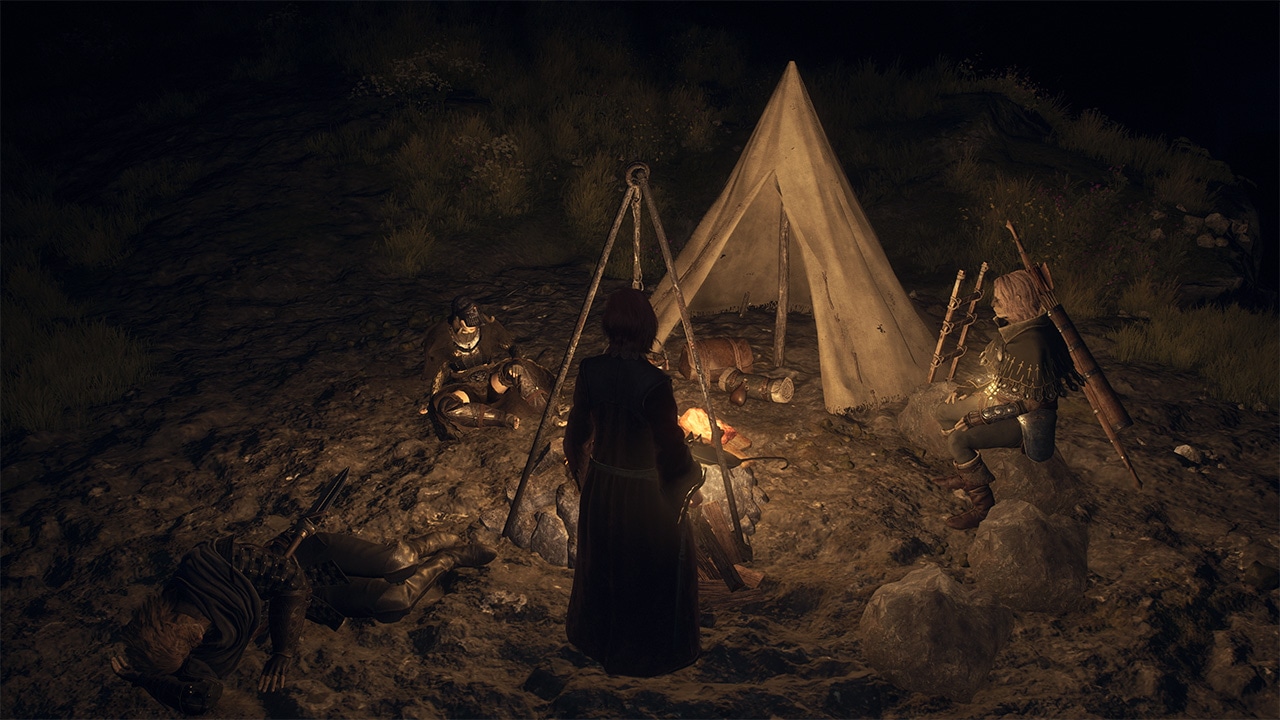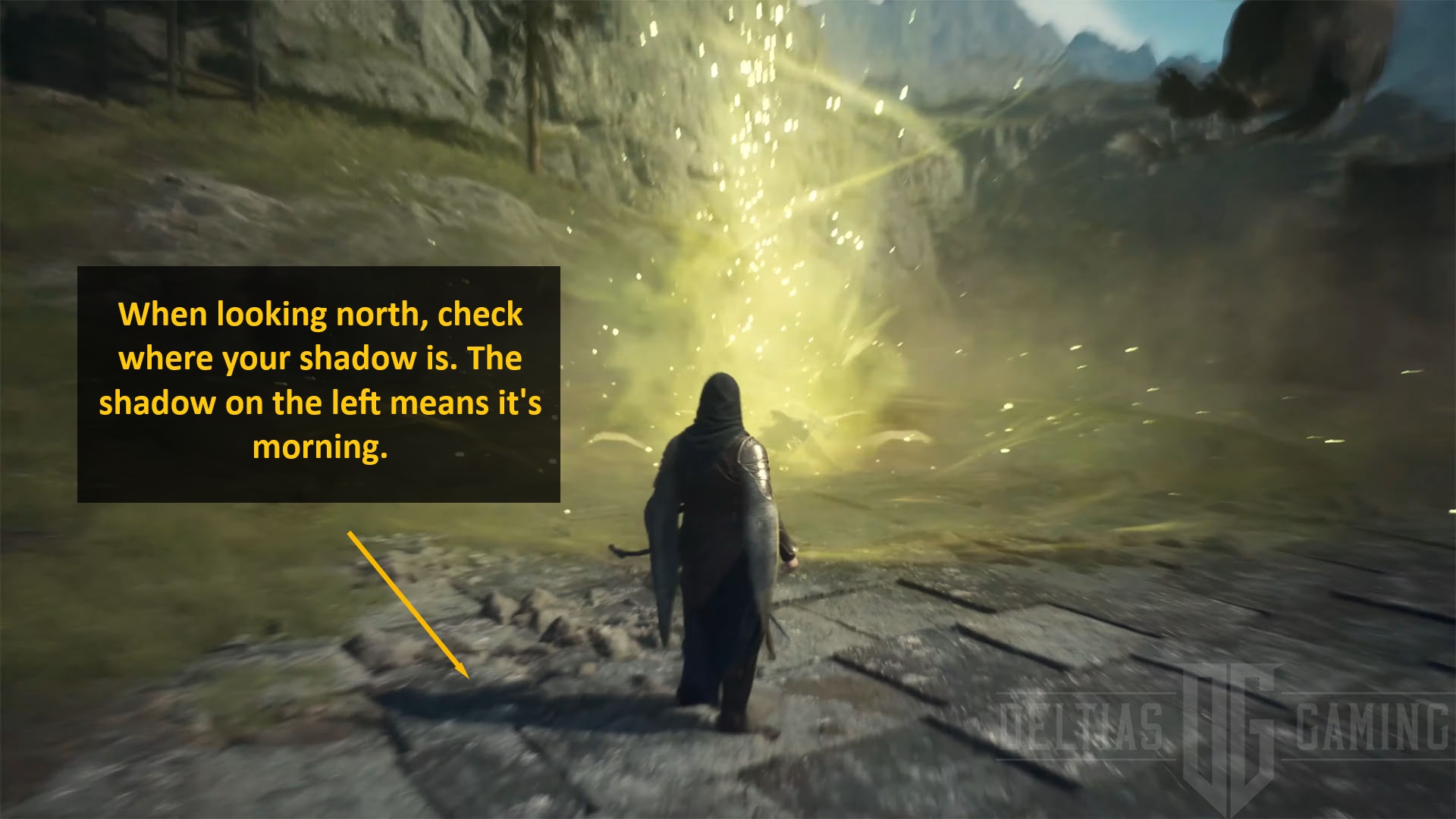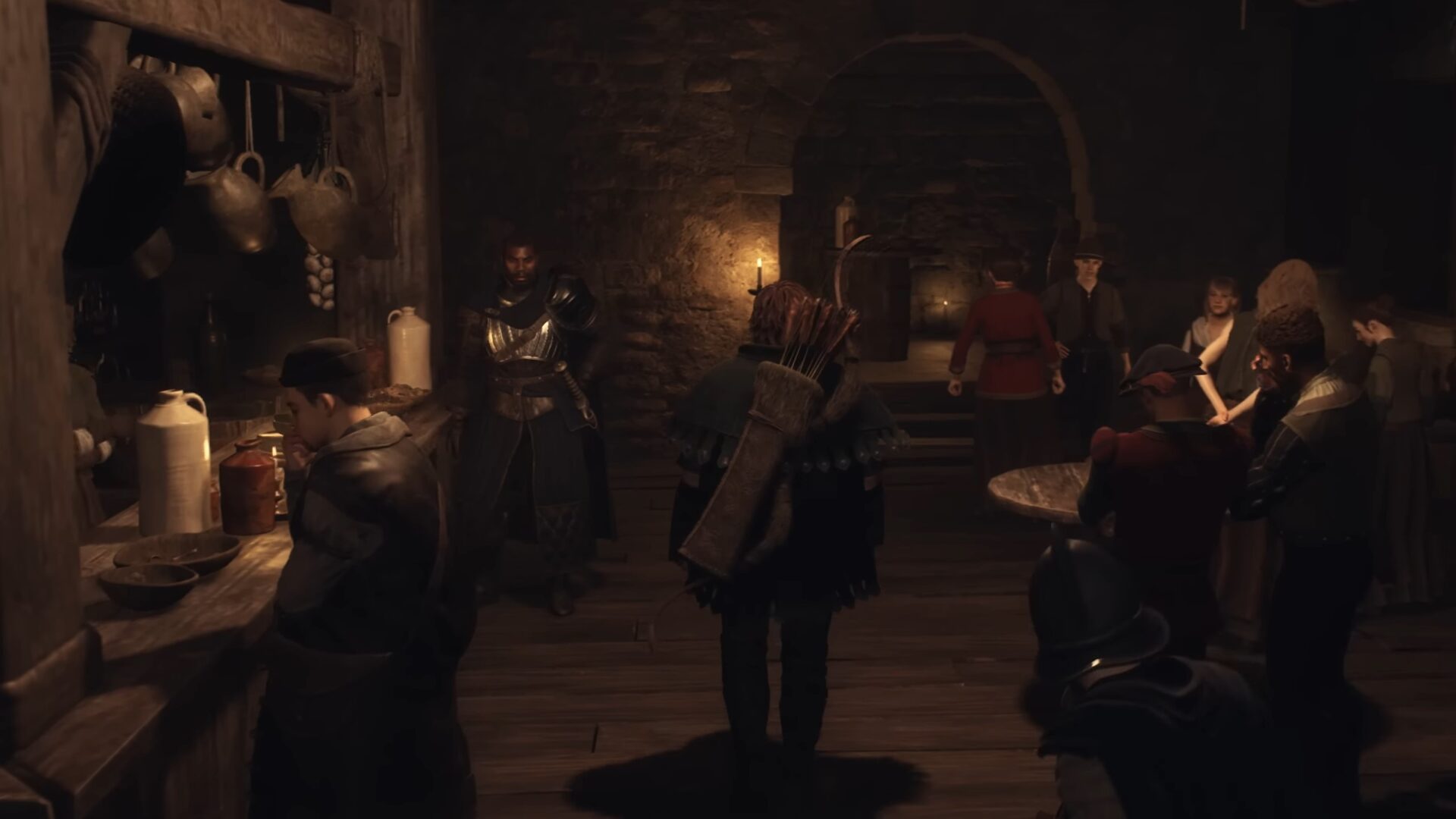Learn how to change the time of day in Dragon’s Dogma 2, what are strategies, and the implications of the night cycle.

In the expansive world of Dragon’s Dogma 2, time is a crucial element that influences gameplay and strategy. Whether you’re exploring treacherous dungeons or embarking on epic quests, understanding how to control the flow of time can be a valuable skill. Here’s a comprehensive guide on changing the time of day and making the most of this dynamic feature.
How to Change the Time of the Day
You need to sleep to change the time of the day in Dragon’s Dogma 2. Here are known methods:
- Inns and Camps: Seek out inns or camps where you can rest and alter the time of day according to your needs. When sleeping, you can also replenish part of your character’s health.
- Camping Kits: Players with the game’s Deluxe Edition can acquire Explorer’s Camping Kit, a lighter camping option that facilitates exploration.

Resting Mechanism Explained
Players can rest at specific locations such as inns, camps, or other suitable spots scattered throughout the game world to change or advance the time of day. When you sleep, time will progress by approximately 8 hours, transitioning through morning, afternoon, and night.
Also, Pawns will warn you if the night is approaching, so you will know when to look for an appropriate place to change the time of day and rest in Dragon’s Dogma 2. Listen to your companions; they have many valuable tips while traveling and exploring.
Observe Character’s Shadow

There is no clock feature in Dragon’s Dogma 2. To approximate the time of day, you can use your character’s shadow as a makeshift sundial. Position your character in an open area during the day, point the camera north, and observe the direction of the shadow to determine the approximate time, just like you would observe the clock.
Time Implications
Changing the time of day not only affects visibility and ambiance but also has broader implications on gameplay:
- World Progression: Each time, skip moves the entire game world forward by 8 hours, influencing NPC behavior, quest progression, and environmental changes.
- Quest Timelines: Time-sensitive quests may be impacted by time skips, potentially leading to quest failures if objectives are not completed within the allotted time.
- Healing: Sleeping can replenish a chunk of your health
- Visibility: It’s undoubtedly easier to travel or fight during the day.
- Stronger Enemies at Night: During the night and in dark places, you can find more challenging enemies, so keep that in mind, especially when you have just started and are still learning the mechanics and combat.
Best Strategies for Effective Time Management in Dragon’s Dogma 2

To optimize time management and prevent negative consequences, consider the following strategies:
- Strategic Resting: When planning quests, it’s crucial to consider objectives to avoid unintended failures. Take advantage of the day-night cycle by adapting your tasks based on the time of day.
- Mindful Exploration: Efficiently maximize activities, exploration, and quests during the day, while being mindful of in-game time.
- One Save File: Dragon’s Dogma 2 has a single save file system that permanently progresses time. Be careful before advancing time, regularly checking your quest log and inventory to avoid overlooking time-sensitive tasks.
To succeed in Dragon’s Dogma 2, mastering time management is crucial. You’ll need to know how to change the time of day, observe the effects of time, and use effective strategies.
Looking For More About Dragon’s Dogma 2?
Thank you for reading How to Change the Time of the Day in Dragon’s Dogma 2 Guide. We provide the latest news and create guides for Dragon’s Dogma 2, Enshrouded, and Baldur’s Gate 3. Also, watch me play games on Twitch or visit my YouTube channel!
 Reddit
Reddit
 Email
Email


